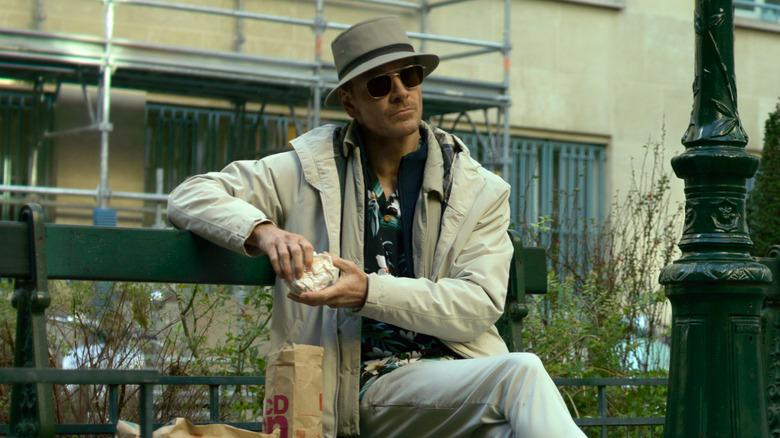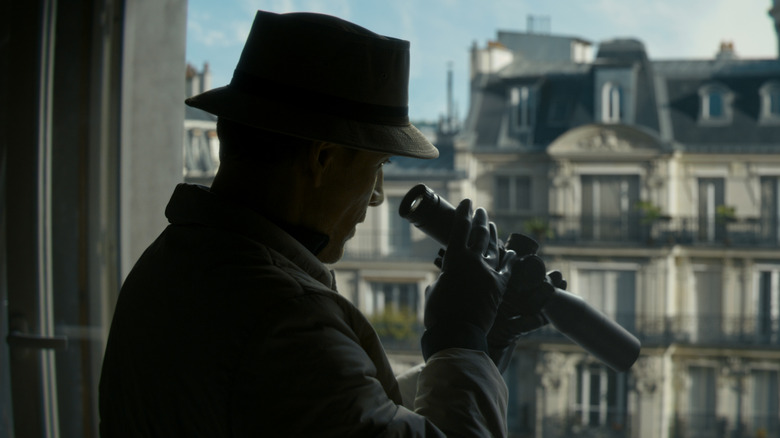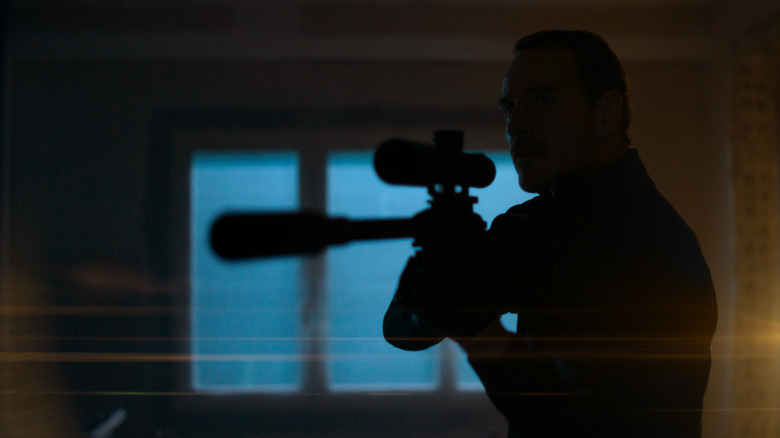The Killer Review: The Perfect Crime
- Immaculate visuals
- Wonderfully ironic needle drops
- Captivating lead performance from Michael Fassbender
- Could be considered a minor David Fincher film for its slight, straightforward nature
Throughout the divisive reactions to David Fincher's previous film, the prestige drama "Mank," there was this pervasive sense of loss. The film was nominated for 10 Oscars and was critically lauded, but at least on the surface, the Old Hollywood biopic felt like such a departure from what the masses have come to know and love about the celebrated auteur. To some, the black-and-white period piece was far too conventional. Too, dare we say, safe. Where did one of our foremost purveyors of stylish and jagged portraits of the world's many freaks and outsiders run off to, and when was he coming back to wield his camera like the serrated edge of a blade?
Well, Netflix put him back to work, and he's returned with "The Killer." The sharp and darkly comic thriller follows a fussy hitman (played by Michael Fassbender) with an obsessive eye for detail, whose life unravels after he misses his target for the first time in his career. The premise, based on the French graphic novel of the same name, immediately calls to mind the fairly obvious parallel between this nameless contract killer and Fincher himself. And that's even before his meticulous voice-over narration begins to register with the same cadence as Fincher's director commentaries.
It's charming to perceive "The Killer" as a comforting return to form that doubles as an autobiographical exercise processing a recent near-miss. But "The Killer" is more than just a slickly shot, brilliantly acted, and cleverly written little B-movie. It's also the most elucidating rumination on modern consumer culture since Fincher's own "Fight Club" took aim at the hollow commercialism of the 1990s.
This Charming Man
In the lineage of zen'd-out professional criminals like Alain Delon's ice-cold but sartorially sound killer from "Le Samouraï," the titular killer is a man for whom the devil lays in the details. The film's lengthy opening sequence, a deeply satisfying short film unto itself, takes the viewer inside his process of executing a hit, coupled with near-constant editorializing about his methods, his worldview, and how the same impersonal systems that isolate us from face-to-face interaction in our daily lives make doing what he does so much easier. Though the film's neo-noir nature allows David Fincher to indulge in some sinfully entertaining displays of violence, much of its actual power lies in using the protagonist's chosen vocation as an entry point into commentary on the nature of the gig economy.
The dominant hitman franchise these days is the "John Wick" series, which burrows deeper into its arcane mythology with each chapter, showing us a secret underworld of like-minded criminals with their societal rules. But our killer dresses like a German tourist, eats breakfast at McDonald's, and has key fob copiers same-day delivered to Amazon lockers when he needs to make a clean break-in. By the time he's relying on a Postmates driver delivering food to a reclusive billionaire as an ingress point, "The Killer" resonates as a bleak portrayal of late-stage capitalism. There's something so humorous about watching a professional in an occupation like contract killing, which is usually depicted with an otherworldly sense of intrigue, operate with such clinical and rote mundanity.
The unnamed killer protagonist uses an Apple Watch to track his micro-naps while staking out a job. He drinks water from the same convertible metal cup that shows up in "everyday carry" videos all over YouTube. And in between his incessant musings on how to blend in and why murdering people for a living really isn't all that bad, he listens to The Smiths. A lot. Whenever Trent Reznor and Atticus Ross' delightfully dissonant original score is not in use, or we're not subjected to the painful, waiting silence of the killer's downtime, an endless array of needle drops featuring Morrissey's trademark vocals and Johnny Marr's lovely guitar work act as a counterbalance for the dry, dispassionate way Michael Fassbender speaks and moves. Professional hitmen — they use apps to order food and dissociate to sad songs just like the rest of us!
Girlfriend in a Coma
If "The Killer" has a failing, it's in the general thrust of the film's plot and how boilerplate it feels. After the killer misses his mark, his girlfriend, Magdala (Sophie Charlotte), is brutally attacked and nearly killed in an incident meant for him. This sets the killer on a path for revenge that goes against every one of the high-minded little maxims he purports to live by. Along the way, we're treated to some great bits of suspense and one of the most brutal fight scenes in recent cinematic memory. But once he's set on this murderous quest, the beats feel like countless other, similar films. In particular, you might be reminded of "Haywire," the Steven Soderbergh spy-fi thriller in which Michael Fassbender also gets the crap beat out of him.
Luckily for us, "The Killer" in many ways feels more like a Soderbergh picture than that flick, which itself felt like little more than a charming style exercise. Soderbergh said he watched "The Killer" several times before its release, and David Fincher admitted his pal may have assisted in re-editing multiple scenes for the final product. There's a behind-the-scenes kinship at play that feels truly fascinating. Some of it is visible in just the overlapping influences, as both men seem to be enamored by the brusque structure of John Boorman's 1967 film "Point Blank." But the rerun nature of the film's plot makes it that much easier to join in on Fincher's current thematic preoccupations, which dovetail with Soderbergh's returning, again and again, to the role of laborers in society and their constant betrayal at the hands of those holding all the capital who see them as easily replaceable.
"The Killer" is in theaters now and debuts on Netflix on November 10.


